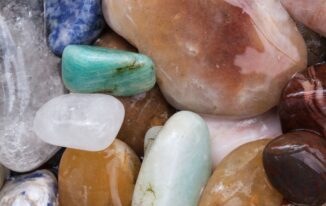The long-lasting beauty, sleek design, and minimal upkeep of quartz countertops make them a popular option for both the kitchen and bathroom. Nevertheless, adopting proper cleaning methods is crucial if you want to keep them looking perfect and make them last longer. In order to keep your quartz countertops looking beautiful and pristine, follow the steps outlined
in this tutorial. Quartz countertops may not need sealing like natural stone surfaces do, but they should still be handled with care to prevent permanent damage. How to clean quartz countertops effectively, keep them shiny, and shield them from everyday harm are all topics we’ll cover in this handy guide.
Wiping down surfaces is not enough to clean quartz countertops. By being knowledgeable of the best techniques, you can make your investment last longer and maintain your bathroom or kitchen looking nice. We have you covered with a thorough, step-by-step method for maintaining quartz countertops, whether you are dealing with common spills or stubborn stains.
Why Proper Cleaning Matters for Quartz Countertops
Quartz is a non-porous engineered stone, making it resistant to stains and bacteria. However, improper cleaning techniques or the use of harsh chemicals can dull the surface and reduce its lifespan. By following the right methods, you can keep your countertops looking brand new while preserving their quality. Regular cleaning and preventive care will help maintain its original brilliance and functionality, ensuring that your countertops remain an eye-catching feature in your home.
Proper cleaning not only keeps your countertops looking spotless but also ensures they last for years without losing their shine. Using the right products and cleaning techniques will help prevent common problems such as etching, hard water stains, and surface scratches. In this section, we will discuss the importance of regular maintenance and how it affects the longevity of your quartz countertops.

Quartz Care 101: A Step-by-Step Cleaning Guide to Keep Your Countertops Looking Brand New
Maintaining the beauty and functionality of your quartz countertops requires a structured approach. This step-by-step guide will help you implement an effective routine to clean, protect, and preserve your countertops without causing damage.
Step 1: Gather Your Essential Cleaning Supplies for Effective Maintenance
Before you begin, ensure you have the right materials to avoid damaging the quartz surface. You will need:
- Mild dish soap
- Warm water
- Soft microfiber cloth or sponge
- Non-abrasive quartz cleaner (optional for deep cleaning)
- Baking soda (for tough stains)
- Isopropyl alcohol (for ink and marker stains)
Step 2: Establish a Daily Cleaning Routine for a Sparkling Surface
Daily maintenance is the key to preventing buildup and maintaining the shine of your quartz countertops. Follow these simple steps:
- Mix warm water with a few drops of mild dish soap.
- Dampen a microfiber cloth or sponge and gently wipe the surface.
- Rinse with clean water and dry with a soft cloth to avoid streaks or water spots.
- Avoid leaving spills unattended, especially coffee, tea, or wine, to prevent stains.
Step 3: Effectively Remove Stubborn Stains Without Damaging the Surface
If you encounter tough stains, take these steps:
- For dried spills, gently scrape using a plastic putty knife.
- For oily stains, apply a baking soda and water paste, let it sit for a few minutes, then wipe clean.
- To remove ink or marker stains, dab a small amount of isopropyl alcohol on a cloth and gently rub the affected area.
Step 4: Perform a Weekly Deep Cleaning Routine for a Thorough Refresh
To maintain the long-term beauty of your quartz, consider deep cleaning once a week:
- Use a non-abrasive quartz cleaner to remove any lingering buildup.
- Spray the cleaner evenly across the surface and allow it to sit for one minute.
- Wipe the surface with a microfiber cloth, ensuring no residue is left behind.
Step 5: Implement Preventive Measures to Avoid Long-Term Damage
Protect your quartz countertops by following these guidelines:
- Always use cutting boards to prevent scratches and knife marks.
- Place hot pots and pans on trivets or heat-resistant mats to avoid thermal shock.
- Wipe up spills immediately to prevent potential staining or discoloration.
- Avoid placing heavy objects directly on unsupported quartz slabs to prevent cracking.
By following this structured approach, you will keep your quartz countertops looking brand new for years to come.
Daily Cleaning Routine for Quartz Countertops
Maintaining your quartz countertops doesn’t have to be complicated. A simple daily routine can prevent buildup and keep the surface shining.
Step 1: Wipe Down the Surface with Gentle Cleaners to Remove Dust and Spills
The first step in pest control is a thorough inspection of the property. Pest control professionals identify:
-
Use a soft microfiber cloth or a sponge to wipe away crumbs, spills, and dust.
-
Opt for a mild dish soap mixed with warm water for regular cleaning.
Step 2: Rinse and Dry to Prevent Water Spots and Streaks
- After wiping with soapy water, rinse the surface with clean water.
- Use a dry microfiber cloth to remove any remaining moisture and prevent water spots.
How to Remove Stains from Quartz Countertops
Even though quartz is stain-resistant, some spills can leave behind marks if not cleaned properly. Here’s how to handle different types of stains effectively.
1. Removing Common Stains: Quick Fixes for Everyday Spills
-
Grease and Oil Stains: Use a gentle degreaser or a mixture of warm water and mild dish soap.
-
Coffee or Wine Stains: A mixture of baking soda and water can help lift stubborn stains.
-
Ink or Marker Stains: Apply isopropyl alcohol (rubbing alcohol) on a cloth and gently rub the stain.
2. Avoid Harsh Chemicals: Protect the Surface from Damage and Discoloration
- Never use bleach, ammonia, or acidic cleaners (such as vinegar or lemon juice), as they can damage the resin binders in quartz.
- Stick to pH-balanced cleaners designed for quartz surfaces.
Deep Cleaning Quartz Countertops
Occasionally, your countertops will require deeper cleaning to remove residue buildup and keep them shining.
Use a Non-Abrasive Quartz Cleaner
- Apply a small amount of a non-abrasive quartz cleaner to the surface.
- Let it sit for a few minutes to break down any grime.
Scrub Gently Without Compromising the Quartz Surface
- Use a soft sponge or cloth to gently scrub the surface.
- Rinse with clean water and dry thoroughly.
Eco-Friendly Cleaning Solutions for Quartz Countertops: Safe and Sustainable Options
Many homeowners are looking for environmentally friendly ways to clean their quartz countertops without compromising effectiveness. Luckily, there are several eco-friendly cleaning solutions that can keep your countertops spotless while being safe for your home and the environment.
1. Vinegar-Free Natural Cleaners
While vinegar is a popular natural cleaner, it is too acidic for quartz surfaces. Instead, opt for a mixture of mild dish soap and warm water. This simple solution is effective for daily cleaning without causing damage.
2. Baking Soda for Tough Stains
For stubborn stains, a paste made of baking soda and water can help lift dirt without scratching the surface. Apply the paste to the stained area, let it sit for a few minutes, and then gently wipe it away with a damp cloth.
3. Plant-Based and Biodegradable Cleaners
Several plant-based and biodegradable cleaners are available on the market that are specifically formulated for quartz countertops. These products are free from harsh chemicals and are safe for both your home and the environment.
4. DIY Essential Oil Disinfectant
To give your quartz countertops a fresh scent and extra shine, mix a few drops of essential oil (such as tea tree or lavender) with water and mild dish soap. This solution will clean and disinfect without leaving behind toxic residues.
Using eco-friendly cleaning solutions not only preserves the integrity of your quartz countertops but also contributes to a healthier living space and a more sustainable planet.
Preventing Damage to Quartz Countertops
Taking simple precautions can go a long way in protecting your quartz countertops from scratches, stains, and other forms of damage.
1. Avoid Direct Heat Exposure: Prevent Cracking and Discoloration from High Temperatures
- Quartz is heat-resistant but not heatproof.
- Always use trivets or heat pads when placing hot pots and pans on the surface.
2. Use Cutting Boards: Shield the Surface from Scratches and Knife Marks
- While quartz is scratch-resistant, cutting directly on the surface can damage the finish over time.
- Always use a cutting board to prevent scratches and maintain the countertop’s polished look.
3. Keep Quartz Dry: Minimize Water Damage and Prevent Cloudy Residues
- Standing water or moisture can lead to dull spots over time.
- Always wipe up spills immediately to prevent water stains.
What Not to Do When Cleaning Quartz Countertops: Avoid These Common Mistakes
While quartz is an incredibly durable material, improper cleaning, and maintenance can lead to damage over time. Many homeowners unknowingly make mistakes that compromise the integrity of their countertops. Here are some key cleaning habits to avoid.
- Using Harsh Chemicals: Bleach, ammonia, and acidic cleaners such as vinegar or lemon juice can break down the resin in quartz, leading to discoloration and dullness.
- Scrubbing with Abrasive Materials: Steel wool, rough sponges, and scouring pads can create micro-scratches on the surface, reducing the countertop’s smooth finish.
- Allowing Spills to Sit Too Long: While quartz is resistant to stains, prolonged exposure to coffee, wine, or oil can cause stubborn marks that are difficult to remove.
- Placing Hot Items Directly on the Surface: Although quartz is heat-resistant, extreme temperatures can cause thermal shock and lead to cracks. Always use trivets or heat-resistant mats.
- Skipping Regular Cleaning: A lack of consistent maintenance can lead to a buildup of grime and bacteria, which can impact both aesthetics and hygiene.
Avoiding these common mistakes will help protect your quartz countertops from unnecessary wear and tear. By following the right cleaning practices, you can ensure your countertops remain in excellent condition for years to come.
FAQs
- Can I use vinegar to clean quartz countertops?
No, vinegar is acidic and can break down the resin binders in quartz, causing damage. Instead, use a mild dish soap and water solution or a pH-balanced quartz cleaner.
- What is the best cleaner for quartz countertops?
The best cleaners are mild dish soap and water or specialized quartz cleaners. Avoid abrasive or acidic products to maintain the integrity of the surface.
- How do I restore the shine to my quartz countertop?
Regular cleaning with a microfiber cloth and mild soap should maintain its shine. For an extra boost, you can use a quartz-safe polish occasionally.


